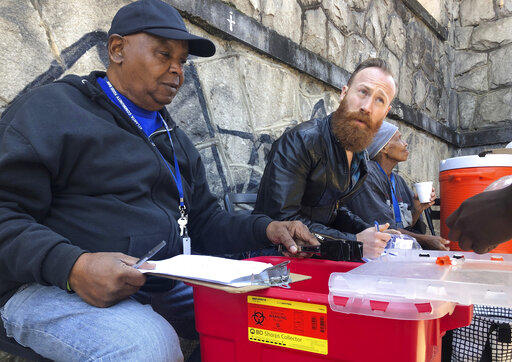
Caption
In this photo from March 20, 2019, Harry Ethridge, client services manager at the Atlanta Harm Reduction Coalition, and Jonathan Spuhler, an outreach coordinator for Absolute Care and volunteer at AHRC, set up a needle exchange station for drug users to swap out used syringes for clean syringes on English Avenue in Atlanta.
Credit: (AP Photo/Sanya Mansoor)

